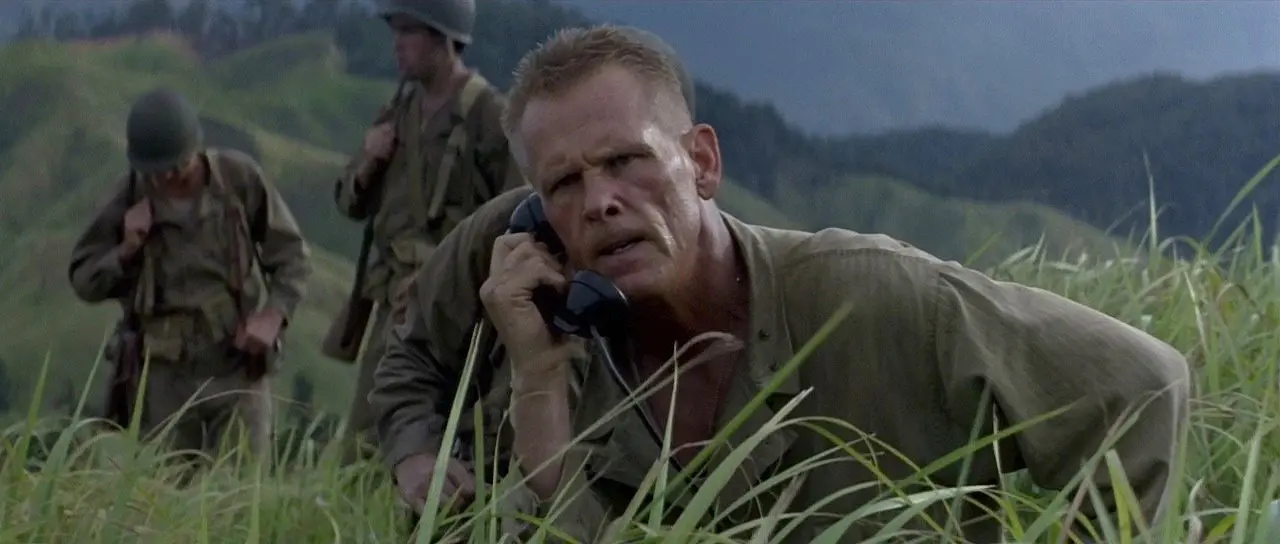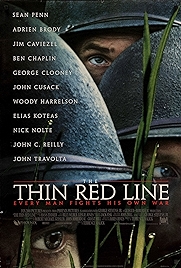In the mid-1990s it was more or less universally accepted that Terrence Malick had given up making films. He’d made Badlands in 1973 and Days of Heaven in 1978, both of them the sort of films that have critics coining new superlatives, but that was that. Then, 20 years after Days of Heaven, he came back as if from nowhere with his version of The Thin Red Line – there’d already been an adaptation of James Jones’s novel in 1964. And like Badlands and Days of Heaven it took a familiar genre – the war film in this case – and gave it a typically reserved Malickian treatment.
Malick’s WWII actioner is not exactly an exercise in turning war-film conventions on their head, though it certainly does do that. Instead of concentrating on one Rambo-style character while everyone and everything around is being blown into the next world, Malick shoots the film as if he were a visitor from that next world. Drifting from soldier to soldier, his camera glides through the landscape and makes as if to enter the soldiers’ souls. The soundtrack is spookily calm, sometimes silent, particularly in the big action scenes. Like all good war films, The Thin Red Line is not about moments of great heroism or dick-measuring hardware face-offs (though it does that, too). It’s about the equation that all wars turn on: how many soldiers is it worth losing in order to win? And what is the personal price of victory?
The film is also, as all Malick films seem to be at some level, about humanity’s fall from grace – paradise lost. Audiences who first saw it were perhaps not ready for such a meditative war film. They probably weren’t ready for Malick’s casting decisions either. There are lots of big names in the credits to The Thin Red Line – Sean Penn, John Travolta, Woody Harrelson, John Cusack, Adrien Brody – though the focus of the drama is on lesser known names such as Jim Caviezel and Ben Chaplin. Though special mention in despatches must go to Nick Nolte, brilliant as the rabid lieutenant-colonel hungry for war glory, and one of the few carry-overs from the more traditional war epic.
Was Malick’s return welcomed with open arms? The answer is mixed. Critical reaction ranged from “cliched, self-indulgent” (Salon.com), and “heartfelt but not profound” (Roger Ebert) to “a genuinely epic cine-poem” (Time Out London). Whichever way you look at it his film made an interesting counterblast to Saving Private Ryan, which for six months had been the war movie everyone was talking about. And it broke the logjam – Malick, one of the great stylists of cinema, was back.
The Thin Red Line – at Amazon
I am an Amazon affiliate
© Steve Morrissey 2013

